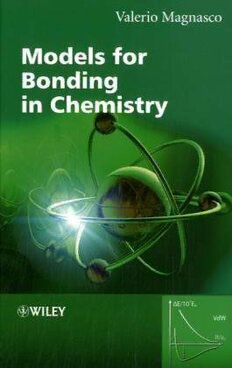
Models for Bonding in Chemistry PDF
234 Pages·2010·1.943 MB·English
Most books are stored in the elastic cloud where traffic is expensive. For this reason, we have a limit on daily download.
Preview Models for Bonding in Chemistry
Description:
A readable little book assisting the student in understanding, in a nonmathematical way, the essentials of the different bonds occurring in chemistry. Starting with a short, self-contained,introduction, Chapter 1 presents the essential elements of the variation approach to either total or second-order molecular energies, the system of atomic units (au) necessary to simplify all mathematical expressions, and an introductory description of the electron distribution in molecules. Using mostly 2x2 Hückel secular equations, Chapter 2, by far the largest part of the book because of the many implications of the chemical bond, introduces a model of bonding in homonuclear and heteronuclear diatomics, multiple and delocalized bonds in hydrocarbons, and the stereochemistry of chemical bonds in polyatomic molecules, in a word, a model of the strong first-order interactions originating the chemical bond. In Chapter 3 the Hückel model of the linear polyene chain is used to explain the origin of band structure in the 1-dimensional crystal. Chapter 4 deals with a simple two-state model of weak interactions, introducing the reader to understand second-order electric properties of molecules and VdW bonding between closed shells. Lastly, Chapter 5 studies the structure of H-bonded dimers and the nature of the hydrogen bond, which has a strength intermediate between a VdW bond and a weak chemical bond. Besides a qualitative MO approach based on HOMO-LUMO charge transfer from an electron donor to an electron acceptor molecule, a quantitative electrostatic approach is presented yielding an electrostatic model working even at its simplest pictorial level. A list of alphabetically ordered references, author and subject indices complete the book.
See more
The list of books you might like
Most books are stored in the elastic cloud where traffic is expensive. For this reason, we have a limit on daily download.
